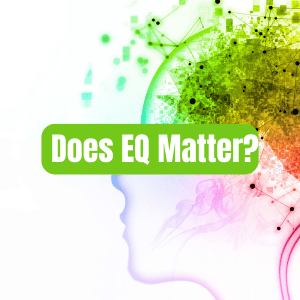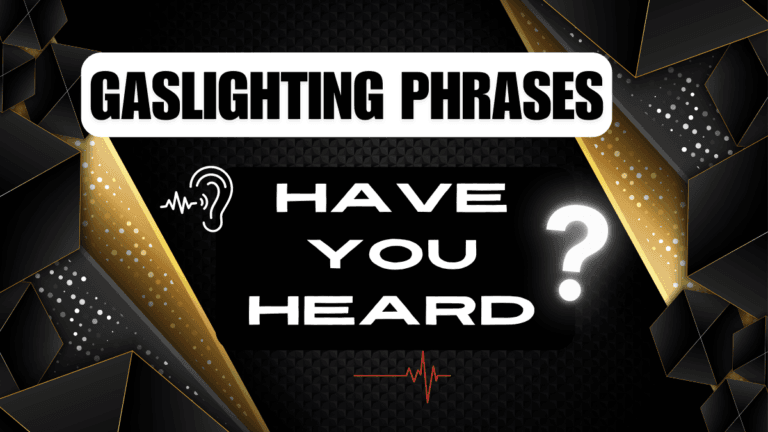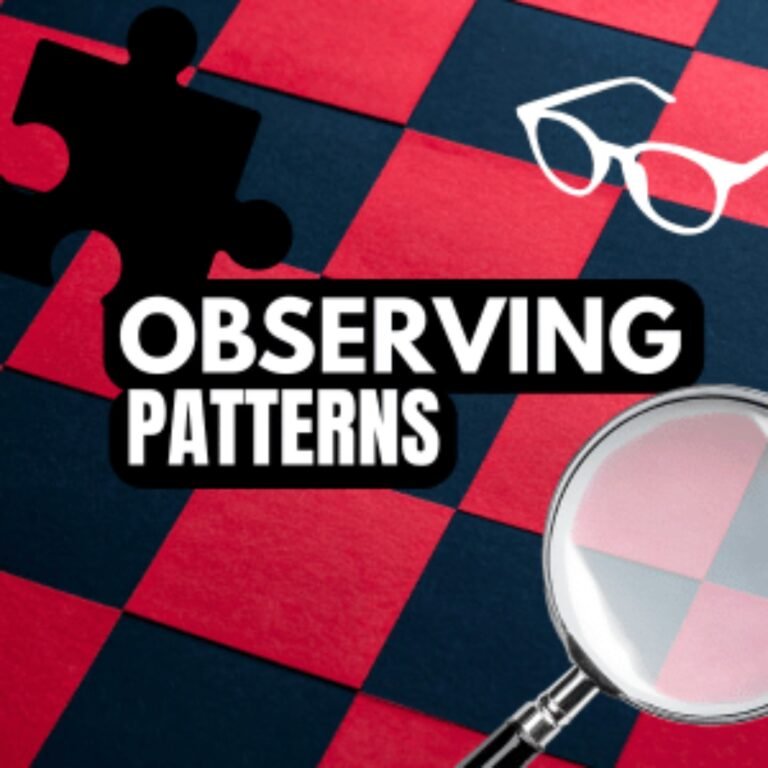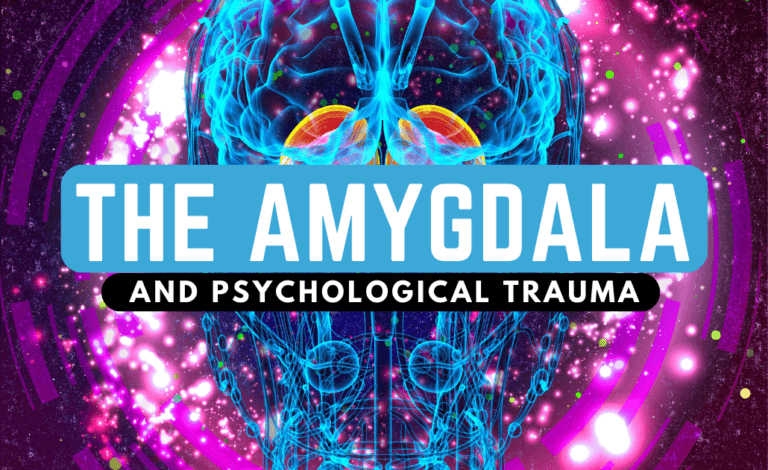Emotionally Absent
Have you spent years feeling unseen in your relationship, wondering why someone who says they love you can’t seem to connect with you emotionally? In this episode, we explore the hidden emotional architecture behind that disconnect — specifically, how alexithymia and cultural conditioning through patriarchy create the perfect storm for emotional starvation.
This is not just about emotionally unavailable men. It’s about men who were taught — sometimes neurologically wired — not to feel. And it’s about the women who’ve lived beside them for decades, carrying the entire emotional weight of the relationship and doubting themselves the whole time.
We explore how these patterns intertwine with narcissistic abuse, how emotional neglect masquerades as “normal,” and how survivors can finally name what they experienced — not as personal failure, but as systemic conditioning.
If you’ve ever asked:
- “Why won’t he open up?”
- “Is it me?”
- “How can something so silent feel so painful?”
This episode offers answers — and the validation you’ve been craving.
It’s not just about what happened. It’s about finally putting words to what was missing.
The following is a transcript from the Narcissistic Abuse Recovery Podcast
There’s a quiet crisis playing out all around us.
It doesn’t shout, but it echoes in broken relationships,
misunderstood silence,
and generations of emotional confusion.
There’s a quiet crisis playing out around us.
It doesn’t shout, but it echoes in broken relationships,
misunderstood silence,
and generations of emotional confusion.
It’s not about a lack of emotions.
It’s about the absence of a roadmap to express them,
Alexithymia affects millions, especially men, and what happens next.
Partners feel isolated, intimacy erodes, silence speaks louder than connection.
And some of you have been dealing with this for 20, 30, or 40 years.
Welcome back to the Narcissistic Abuse Recovery Podcast.
I’m Lynn, your host.
Today in this episode, we’re untangling the emotional mechanics behind Alexithymia.
What it is, how it forms, and why it matters, especially for
survivors of narcissistic abuse.
We’ll follow the thread from misunderstood psychology to patriarchal
conditioning, and explore how these invisible forces
shape emotionally barren relationships.
Whether it shows up as blank stares during conflict or
years of feeling unseen, we’ll lay it bare.
This conversation isn’t about blame.
It’s about insight, self-respect, healing, and reclaiming emotional truth.
And yes, we’ll challenge the old rules with clarity,
compassion, and just enough edge to keep things interesting.
So what is Alexithymia?
Alexithymia sounds clinical,
like the kind of diagnosis scribbled at the bottom of a psychiatrist’s notepad.
But it’s reality, quiet, confusing, deeply human.
It’s the experience of feeling something, physically, emotionally, but
being unable to identify or articulate it.
Not because you’re cold-hearted, not because you’re broken, because somewhere
along the way, you weren’t given the tools to translate your emotional world
into language.
Related: 400,000 Women are Making Big Changes
People with Alexithymia might say, I don’t know what I’m feeling.
I can’t tell if I’m sad or just tired.
I get overwhelmed, but I don’t know why.
And this emotional blind spot isn’t rare.
Studies published in BMC Psychiatry estimate that roughly 10% of
the general population experiences Alexithymia, and rates are higher in men.
But here’s the kicker, it’s not an emotion deficit,
it’s an emotion language barrier.
Alexithymia is often linked to early emotional neglect,
lack of modeling emotional vocabulary in childhood, trauma, or
chronic invalidation during key developmental years.
It’s like growing up in a home where everyone’s speaking feelings,
but you were never taught the dialect.
In clinical settings, it’s described as having trouble,
distinguishing between emotional states, describing your internal experience,
even connecting physical sensations to emotional meaning,
like stomach tension as anxiety.
And if you’re thinking, that sounds familiar, you’re not alone.
And when I say you are not alone,
many women are going through this same thing.
Some of you have been married to a man for 20 or 30 years or more, and
now you are about to realize what may have been going on.
Now, a little bit about the system.
The system that operates behind the scenes,
that seems to keep everything going seamlessly, though invisibly.
But a couple of things I want to point out about that system.
The patriarchy is not about individual men being inherently evil or
women being helpless.
It is a social system intentionally created and
enforced by men over generations to secure and protect their dominance.
From childhood, men were conditioned to believe this hierarchy was natural and
right, just as women were conditioned to comply, self-silence, and
even police themselves and one another.
This mutual conditioning made patriarchy feel normal,
leaving it unchallenged for centuries.
It was not until women began speaking out and demanding equality
that many men were even forced to see patriarchy for what it is.
And even then, many chose to defend it because questioning it
meant risking the comfort of unearned power.
Recognizing that men are both products and
active carriers of patriarchy does not absolve them of responsibility.
Instead, it highlights the urgent need for both men and women to unlearn
these harmful scripts together and to build relationships and
communities grounded in mutual respect and equality.
And it’s important to remember that these patriarchal scripts
don’t just shape our everyday lives.
They also set the stage for narcissistic abuse.
When a system teaches us to silence ourselves, accept blame, or feel unworthy,
it creates the perfect environment for abusers to manipulate,
control, and exploit.
By questioning these scripts, we don’t just heal individually.
We also build resilience against patterns of narcissistic abuse
that thrive in silence and self-doubt.
When emotional expression becomes taboo and
vulnerability is framed as weakness, not humanity,
you end up with partners who don’t just refuse to engage emotionally.
They can’t.
That’s the twisted legacy of patriarchal conditioning.
It doesn’t just silence men, it erodes intimacy.
It creates emotionally barren relationships where survivors are blamed
for wanting connection and punished for asking for more.
So let’s look deeper at the roots of this silence.
Because if we want to understand how alexithymia forms and
how it intersects with narcissistic abuse,
we have to look at the system that teaches men to disconnect.
If emotional suppression were an Olympic sport,
patriarchy would have taken gold every time.
From the moment boys are handed toy swords instead of teddy bears,
they’re enrolled in the boot camp of stoicism.
Vulnerability, that’s for rom-coms and people who can’t bench press 200.
This isn’t about biology.
There’s no why chromosome of emotional constipation.
It’s culture.
It’s centuries of conditioning wrapped in phrases like, man up.
Don’t be so sensitive.
Real men don’t cry unless they just hit a home run.
According to Valerie Hammaker,
patriarchy tells men that emotions are a liability, sadness, fear,
even joy, they’re off limits unless tied to dominance or achievement.
So when emotional expression becomes taboo,
men don’t lose emotions, they lose language.
Every time we talk about patriarchy, the spotlight falls back on men.
Not because we’re obsessed, but because the system centers them.
It hands them the mic even when they weren’t even in the scene.
But here’s the tragedy, patriarchy doesn’t just fail women.
It fails everyone.
It forces men to lead without feeling.
And it casts women as emotional cleanup crews,
left navigating the fallout of disconnect.
Women often juggle emotional labor invisibly, decode moods and
silences, absorb the impact of partners who can’t name what they feel.
A study shows the system contributes to anxiety, burnout and depression,
particularly in women who carry emotional weight without support.
Being with someone who struggles to name their emotions can feel like living
with a locked door.
You know love is behind it, but you’re always searching for the key.
Women in these relationships often describe feeling emotionally isolated,
carrying the entire emotional dialogue,
interpreting silence, tone and body language just to feel connected.
A study on alexithymia in couples found links to fear of intimacy and
insecure attachment, a perfect storm for relationship strain.
So what happens when one person feels deeply and
the other can’t name what they feel at all?
It’s not just heartbreaking.
You’ve been married 40 years.
There have been birthdays, family dinners, hospital visits.
You’ve bought cards, cooked meals, asked how his day was.
You’ve cried, sometimes silently, sometimes right in front of him.
And watched as he stared blankly or said, I don’t know what to tell you.
You tell yourself he’s a good man, and maybe he is.
He’s never cheated.
He worked hard.
He never raised a hand.
But you haven’t felt emotionally held in decades.
You’re not crazy for wanting more.
You’re not needy.
You’re not dramatic.
You’re human.
And being emotionally starved for 40 years doesn’t make you weak.
It makes you resilient.
Because loving someone who can’t name their feelings
doesn’t mean they don’t have them.
It means you’ve been left doing the emotional heavy lifting.
You’ve interpreted his silences.
You’ve rationalized his shutdowns.
You’ve carried the weight of connection
while wondering if it’s even real.
And maybe you stayed for the kids.
Maybe you stayed because he’s not mean, just unavailable.
Absence hurts just as much as aggression.
Alexithymia creates a kind of emotional blindness
that turns relationships into one-sided monologues.
Women report feeling lonelier with their partners
than they did alone.
That emptiness, that ache, it’s not in your head.
It’s in your history.
And no, it’s not your job to teach someone how to feel.
Not after 40 years.
Not when you’ve been speaking emotional volumes
and getting back silence.
So if you’ve ever said, I feel invisible,
he doesn’t get me.
I’m tired of being the one who feels everything.
You are not alone.
And you are not asking for too much.
You’ve just spent a lifetime translating
what he never learned to say.
And that takes courage beyond measure.
This isn’t just validation.
It’s liberation.
Let’s pause.
Have you spent years translating emotions
he never learned to speak
and wondered if that was love?
Did you ever feel lonelier sitting beside him
than you did sitting alone?
How many times did you carry both your pain
and his silence, thinking it was your duty
to hold the relationship together?
Have you convinced yourself that his emotional absence
was a version of care just so you could stay sane?
Was your intuition screaming that something was missing
even when he said everything was fine?
For many women recovering from narcissistic abuse,
the confusion isn’t just about
what happened in the relationship.
It’s about what was missing.
That aching absence of emotional connection.
That constant second guessing.
That sense of being too much
just for wanting to feel close.
Some lived with a partner who was emotionally unavailable,
someone who had emotions but refused to share them.
Others lived with a partner who had alexithymia,
a person who struggled to recognize, label,
or express what they were feeling at all.
From the outside, both dynamics can look eerily similar,
but the roots, very different.
Alexithymia is often linked to trauma,
neurological patterns, or early emotional neglect.
It’s not an emotional wall, it’s a missing blueprint.
The person might be trying,
but they’re building a house with no tools.
Emotional unavailability, on the other hand,
tends to be a protective strategy.
The emotions exist, but access to them is guarded
behind fear, ego, or deep wounds,
sometimes deliberately, sometimes subconsciously.
Survivors who’ve been through this, no.
With alexithymia, you might feel like
you’re loving someone who’s emotionally lost,
confused, detached, but not cruel.
With emotional unavailability,
you might feel like you’re being punished for caring,
shut out, blamed, gaslit for wanting intimacy.
And in both cases, one truth remains.
You were left emotionally starving
while doing all the work.
Related: Could this be the real reason for the Patriarchy?
According to Healthline’s emotional unavailability guide,
these partners tend to deflect vulnerability,
offer inconsistent affection, avoid depth in conversations,
leave you questioning the health
of your own emotional needs,
and survivors often experience chronic anxiety,
self-doubt, emotional burnout,
loss of identity within the relationship.
So if you ever felt like you were writing
emotional love letters to someone who never read them,
you’re not crazy, you’re not needy.
You were trying to connect in a relationship
where emotional reciprocity never arrived.
This isn’t just about clarity, it’s about power,
because once you know what you lived through,
you can name it, and once you name it,
you can stop owning the shame that was never yours.
What we’ve uncovered in this episode
isn’t just about clinical terms
or distant psychology, it’s about lived experience.
It’s about the quiet pain
of being emotionally invisible in a relationship,
and the ways cultural conditioning, trauma,
and alexithymia have shaped that silence.
For survivors, especially those who’ve spent years
trying to translate a partner’s emotional absence
into something that felt like love,
this isn’t just validation.
It’s truth telling, and with truth comes clarity,
choice, and healing.
Emotional neglect doesn’t need bruises to leave scars,
and no one should have to keep shrinking
just to fit inside someone else’s silence.
Let this be your permission to name it,
feel it, and let it go.
We have additional resources on our website
at movingforwardafterabuse.com,
and visit our Gumroad store at waketheelephant.gumroad.com
for downloadable episodes and more.
These links are in the description.
Visit our website at movingforwardafterabuse.com
for additional resources,
and of course, we are on Substack and Medium as well.
We covered a lot of ground in this episode.
Thank you for being here.
This is Lynn, and this has been another episode
of the Narcissistic Abuse Recovery Podcast.
Thank you for listening.
Drop us a positive review if you are enjoying our show.
I’ll catch you in the next one.
🔗 Additional Healing Resources & Support: 👉 movingforwardafterabuse.com
📚 **Books by Lynn** 👉 Go Here
🎓 **Online Course: Narcissistic Abuse Recovery** 👉 Start the Course
🧘♀️ **Somatic Healing Audio Sessions** 👉 Listen Now
📥 **Downloadables: Ebooks, Worksheets & More** 👉 Visit the Store
💬 **Join the Exclusive Community on Supercast** 👉 Become a Member
🎁 **Support the Show** 👉 Tip Jar
📱 **Connect on Social Media** 👉 Visit our Linktree
⭐ **Leave a Review**
This podcast is for educational
and informational purposes only.
The content shared is not a substitute
for professional mental health advice,
diagnosis, or treatment.
If you are experiencing a mental health crisis,
please seek help from a qualified professional
or contact a local crisis hotline.
emotionally absent emotionally absent emotionally absent emotionally absent emotionally absent emotionally absent emotionally absent emotionally absent emotionally absent emotionally absent emotionally absent emotionally absent emotionally absent emotionally absent emotionally absent






